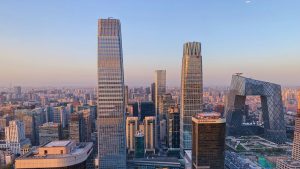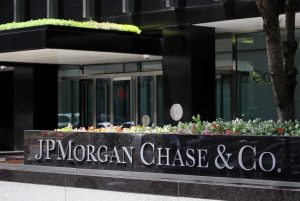April 04, 2025 – JPMorgan Chase, one of the nation’s leading financial institutions, has sounded the alarm on a looming recession in the United States, attributing much of the economic downturn to the effects of President Donald Trump’s tariff policies. In a stark revision of its economic projections, the bank now anticipates a contraction in the U.S. economy over the coming year, reversing earlier expectations of modest growth.
In a detailed report issued on Friday, Michael Feroli, JPMorgan’s chief U.S. economist, outlined the bank’s updated forecast, predicting a 0.3% decline in real gross domestic product (GDP) for the full year. This marks a dramatic shift from the bank’s previous estimate of 1.3% GDP growth, reflecting growing concerns about the stability of the U.S. economy. The revised outlook includes expected declines in economic output during the third and fourth quarters of 2025, signaling a potential recessionary period ahead.
Feroli highlighted the reimposition and expansion of tariffs under President Trump’s administration as a primary driver of the anticipated slowdown. The tariffs, which have targeted a range of imported goods, are seen as disrupting supply chains, increasing costs for businesses, and dampening consumer spending. “The trade policies are creating a ripple effect across multiple sectors,” Feroli noted in the report, adding that the uncertainty surrounding tariff negotiations has further eroded business confidence.
The bank’s warning comes amid a broader debate over the economic consequences of Trump’s protectionist agenda, which has been a cornerstone of his administration’s strategy to bolster domestic industries. While supporters argue that the tariffs protect American jobs and reduce reliance on foreign goods, critics—including JPMorgan’s analysts—contend that the measures are stifling growth and risking a broader economic contraction.
JPMorgan’s revised forecast aligns with mounting unease among economists and market watchers, many of whom have pointed to slowing manufacturing activity, declining corporate investment, and weakening global demand as additional headwinds. The bank’s report suggests that these factors, compounded by the tariff burden, could tip the U.S. economy into negative territory by year’s end.
As financial markets digest the news, attention is likely to turn to the Federal Reserve and its next moves on interest rates. With recession fears intensifying, pressure may grow for monetary policy adjustments to cushion the blow. For now, JPMorgan’s sobering assessment serves as a wake-up call to businesses, policymakers, and investors bracing for a turbulent economic road ahead.








Be First to Comment